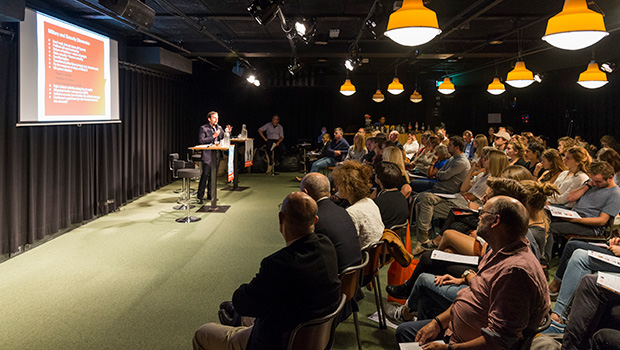“Perhaps the best recommendation is to stay naïve…”. “I see the relevance of the political work, but for us as peace organisation it is crucial to emphasize values, in particular that we never stop promoting non-violence.” “When politicians stop talking, people to people contacts are even more important.”
--- Listen to audio clips from the expert meeting How to stop the bloodshed in the Donbas?
Just a few statements that stayed with me after the expert meeting on the dynamics of conflicts involving Non-Governmental Controlled Areas (NGCAs) that I organized together the Europe team during the Peace Week. As I am working on peacebuilding projects in Ukraine, I am often challenged by the lack of access to the NGCAs in the east. There are many lessons to be learned from experiences in other conflicts in which PAX is working. And who better to talk to than former ministers, diplomats and civil society activists who were actively involved in peacebuilding initiatives in NGCAs?
Do’s and dont’s according to the experts
As I lived the closest to Schiphol airport, I had the honor to welcome our invited guests upon arrival. I was amazed at the diverse backgrounds and regions: from Armenia, Azerbaijan, Croatia, Georgia and Kosovo. On Tuesday morning and afternoon, everyone had the opportunity to share their experiences in peacebuilding. The goal was to see if there are do’s and dont’s that apply in all or most NGCA’s, and to identify possible guidelines for civil society organizations working on peacebuilding in Ukraine as well as recommendations for Ukrainian authorities.
Get the full picture
The first thing that struck me, was how important it is to hear the perspective of people from different sides of the conflict. Only then can you grasp the full picture of the impact of war and peacebuilding: initiatives that were fully successful according to one side, can be better understood and improved when taking into accounts the side notes that the other side is placing.
Lessons learned
- Act and stay naïve enough to believe that your actions can lead to real changes! Because if you wait, things will not resolve.
- Peacebuilding is about winning back the hearts and minds of the people, not the territory! Inclusive policies that take into account the needs of all citizens, also those residing in the NGCA, is what builds their trust. And the people from the NGCA should be included in the peacebuilding process! For instance in Kosovo it still happens that negotiations on the highest political level are held to discuss ‘what’s best for the people living in an NGCA’, without any representative of those people sitting at the table. If the people living in these areas don’t feel ownership of the process, no peace treaty will be sustainable.
- It’s easy to blame the ‘other party’ for the continuation of violence and demand that they change their behavior before any peacebuilding process can start from your side.
But focusing only on ‘who started the war’ or ‘who violates the ceasefire first’, is not going to bring a peaceful solution closer. Of course it is important to point out the other parties’ responsibilities in the peace process, demand that they take their responsibility and start acting towards a peaceful solution. But at the same time you can also go beyond that and work on the ground to restore trust, show inclusiveness and openness towards the residents on ‘the other side’. Think out of the box and see what you can already do now when there is no political will for a peaceful resolution (yet).
Let’s hope that these lessons will strengthen civil society and authorities in Ukraine in stopping the bloodshed in Ukraine. I am convinced that PAX will continue to underline these insights in our daily work in Ukraine.
--- Listen to audio clips from the expert meeting How to stop the bloodshed in the Donbas?




